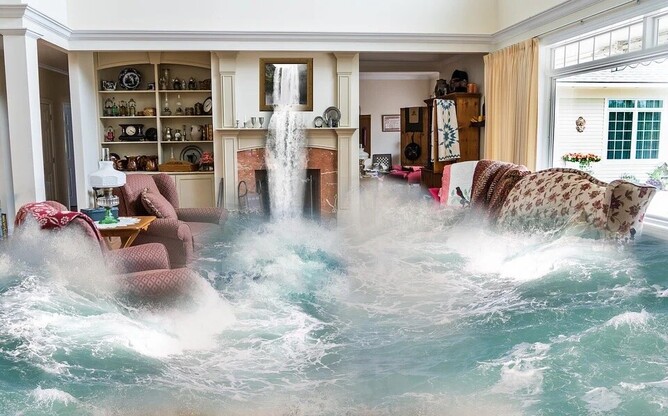Flood risks and insurance being withdrawn
Fire & General insurance (or house, contents, car, boat insurance) is different to life insurance cover. Life insurance (trauma, income protection etc), are a contract that you enter into and it remains in force until you cancel it or it expires (usually when you are very old), or until you stop paying your premiums.
In comparison, F&G insurance is an annual contract, which means that you are entering into a new contract with the insurer each year. What this means is that the insurer can cancel your insurance if they feel that you, your property or your asset is too risky.
Each year at renewal, you need to declare anything that has changed in your situation that could impact on the insurers ability to make their decisions to insure you. This generally means any convictions (particularly for fraud, but also including traffic offences that give you a conviction - and would include being caught breaking lockdown), or any changes in the risk to your situation.
One specific change in the risk to your situation is if your property is near the sea (or any water really). Both Peter and I are the children of civil engineers, and I did a degree in Earth Sciences, learning a lot about hydrology. As a result, although we understand the pull to buy a property near water, we wouldn't do it as we understand how temperamental the natural elements are. Rivers change course and aren't bound by what humans put in place, the sea is impacted by climate change and the changes to sea level, and the increasingly temperamental weather systems.
However, if you do own a property near water, take heed. The insurance company CAN and DOES cancel flood insurance cover. This increases your risk quite significantly. This article in Insurance Business was reporting on a report produced by Belinda Storey from Victoria University about the risk to properties in New Zealand from climate change.
Wellington will be hit first, Christchurch will be hit the hardest, but all four major cities will be affected.
By 2050 at least 10,000 homes in our biggest cities will be effectively uninsurable, however spiking premiums and policy exclusions could start being felt as soon as a decade from now.
If this is likely to impact you, we strongly recommend that you look at the options of mitigating this risk (maybe by selling your home).
Here are some more resources to learn more:
The Detail Podcast - Homes to start losing access to insurance within 15 years - report.
RNZ - Time to failure: Building to withstand climate change.
NZ Herald - Climate report: Extreme risk to people, buildings and water supplies.
Insurance Business - 4,500 Nelson properties at risk of inundation and insurance retreat.


